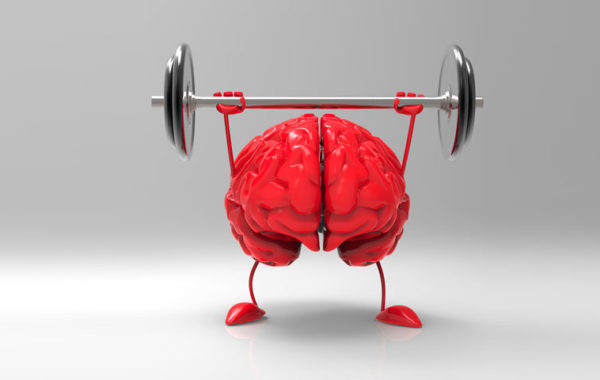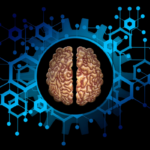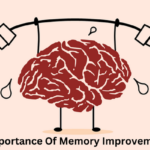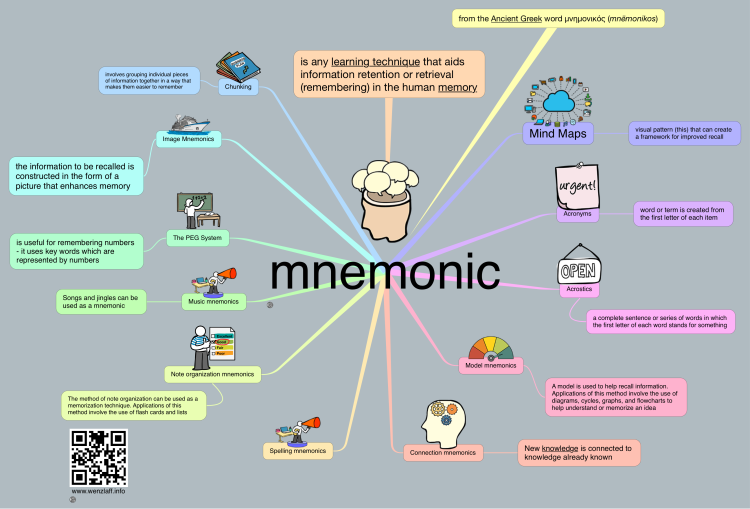Memory Improvement Tips: Unlock Your Brain’s Potential with These Proven Strategies

The human brain is a complex and fascinating organ that has the power to store and retrieve vast amounts of information. However, for many of us, it can be challenging to remember everything that we need to remember, particularly as we age. In this article, we’ll explore some of the best memory improvement tips and techniques that you can use to unlock your brain’s full potential and keep your memories sharp and vivid.
Understanding the Basics of Memory
Before we dive into the various strategies for improving your memory, it’s important to have a basic understanding of how memory works. Memory is essentially the process of encoding, storing, and retrieving information. When you first encounter a new piece of information, your brain encodes it and stores it in your long-term memory. Over time, the strength of the memory can fade, making it more difficult to recall.
There are two main types of memory: short-term and long-term. Short-term memory is often referred to as working memory, and it’s the memory you use to store information temporarily. For example, when you’re trying to remember a phone number that someone just told you, you’re using your short-term memory. Long-term memory, on the other hand, is the memory you use to store information for a more extended period of time.
1. Get Adequate Sleep
Sleeping well is essential for keeping your memory sharp. Your brain analyzes and consolidates information from the day as you sleep, which aids in making memories stronger. People who don’t get enough sleep are more likely to struggle with attention, focus, and memory, according to studies.
To assist your brain process and store information as efficiently as possible, aim for 7 to 8 hours of good sleep each night and create a regular sleep routine. Maintaining a sleep-friendly atmosphere, such as a cool, calm, and dark bedroom, can also aid in enhancing the quality of your sleep and enhancing memory.
2. Stay Mentally Active
Staying mentally active is another important aspect of memory improvement. Engaging in mentally stimulating activities, such as reading, writing, playing games, or solving puzzles, helps to keep your brain sharp and active. This type of mental exercise has been shown to improve cognitive function and may also help reduce the risk of age-related cognitive decline.
Challenging your brain with new experiences and learning new things, such as a new language or instrument, can also help to stimulate brain activity and improve memory. Additionally, staying socially active and engaging in social activities can also help keep the mind active and improve memory function.
3. Exercise Regularly
Exercise is not only beneficial for physical health, but also for cognitive health and memory improvement. Regular physical activity has been shown to enhance brain function and improve memory. Exercise has been found to increase the growth of new brain cells, improve the flow of blood and oxygen to the brain, and reduce the risk of age-related cognitive decline.
Aim to incorporate at least 30 minutes of moderate-intensity physical activity, such as brisk walking, into your daily routine. Aerobic exercises, such as jogging, cycling or swimming, have been shown to be particularly effective for enhancing brain function and improving memory. Additionally, combining aerobic exercise with resistance training can be even more beneficial for improving brain health.
4. Eat a Healthy Diet
Eating a healthy diet is also crucial for memory improvement. A diet that is rich in nutrients and low in unhealthy fats, sugar, and processed foods can help support optimal brain function and improve memory. Here are some key components of a memory-boosting diet:
- Leafy green vegetables: Leafy greens, such as spinach and kale, are rich in antioxidants and vitamins that are important for brain health.
- Berries: Berries, such as blueberries and strawberries, are also high in antioxidants and may help improve memory and cognitive function.
- Fatty fish: Fatty fish, such as salmon and mackerel, are rich in omega-3 fatty acids, which are important for brain health and have been shown to improve memory.
- Nuts and seeds: Nuts and seeds, such as almonds and chia seeds, are high in healthy fats and protein and can help improve memory and cognitive function.
- Whole grains: Whole grains, such as brown rice and whole-grain bread, are a good source of fiber and have been shown to improve memory and cognitive function.
- Hydration: Staying hydrated by drinking plenty of water is also important for brain function and memory improvement.
Incorporating these foods into your diet, along with avoiding unhealthy foods, such as processed foods, added sugars, and unhealthy fats, can help support optimal brain function and improve memory.
5. Reduce Stress
Reducing stress is also crucial for memory improvement. Stress has been shown to have a negative impact on memory and cognitive function. Chronic stress can cause damage to the brain, reduce the growth of new brain cells, and increase the risk of age-related cognitive decline. To reduce stress and improve memory, consider incorporating stress-management techniques into your daily routine, such as meditation, deep breathing, yoga, or exercise.
Regular physical activity, such as brisk walking or jogging, can also be an effective way to reduce stress and improve memory. Additionally, practicing good sleep hygiene, such as going to bed and waking up at the same time every day, can help reduce stress and improve memory. Finally, finding ways to manage your workload, prioritize tasks, and delegate responsibilities can also help to reduce stress and improve memory.
6. Repeat Information
Repeating information is a simple yet effective way to improve memory. The act of repeating information helps to reinforce the connections in the brain and make the information easier to recall later. Repetition can be done in a variety of ways, including repeating information out loud, writing it down, or mentally repeating it. Additionally, spreading out repetition over time, rather than cramming information all at once, can be more effective for long-term memory retention.
Another helpful technique is to associate new information with existing knowledge. For example, if you are trying to remember a new name, you can associate it with someone you know who has a similar name. This helps to create connections in the brain and make the information easier to recall later. Overall, repeating information is a simple yet effective way to improve memory.
7. Use Mnemonic Devices
Mnemonic devices are memory aids that help to associate new information with existing knowledge, making it easier to recall later. There are many different types of mnemonic devices, including acronym, rhyme, image, and story mnemonics. For example, an acronym mnemonic can be created by taking the first letter of each item you need to remember and forming a word or phrase.
A rhyme mnemonic involves creating a memorable phrase or rhyme to help remember information. An image mnemonic involves creating a mental image of the information you want to remember, while a story mnemonic involves creating a story that connects the information together. Mnemonic devices are a powerful tool for improving memory and are particularly helpful for remembering lists, facts, and other types of information that can be difficult to recall.
8. Practice Mindfulness
Practicing mindfulness is a great way to improve memory and overall cognitive function. Mindfulness involves paying attention to the present moment without judgment, and it has been shown to have a number of benefits for memory and brain health. For example, mindfulness has been shown to increase attention and concentration, both of which are important for memory.
Additionally, mindfulness has been shown to reduce stress and anxiety, which can have a negative impact on memory. Practicing mindfulness can be done through meditation, deep breathing exercises, or simply paying attention to your thoughts and surroundings. By taking just a few minutes each day to practice mindfulness, you can improve your memory and cognitive function.
9. Challenge Your Brain
Challenging your brain is another effective way to improve memory and overall cognitive function. Engaging in new and stimulating activities helps to create new neural connections, which can strengthen the brain and improve memory. Some examples of activities that can challenge your brain include:
- Learning a new skill: Whether it’s playing a musical instrument, learning a new language, or trying a new sport, learning a new skill requires concentration and focus, which can help to improve memory.
- Solving puzzles and brain teasers: Crossword puzzles, sudoku, and other brain teasers can help to improve focus and concentration, which in turn can improve memory.
- Playing memory games: Memory games, such as card games or memory match, can help to improve memory by requiring you to recall information.
- Engaging in mental exercises: Mental exercises, such as mindfulness and visualization, can help to improve memory by strengthening neural connections in the brain.
Challenging your brain is an effective way to improve memory and overall cognitive function, so be sure to incorporate activities that challenge your brain into your daily routine.
10. Stay Hydrated
Staying hydrated is important for overall health, and it can also play a role in improving memory. The brain is made up of 73% water, and even mild dehydration can impact cognitive function and memory. Drinking enough water can help to improve focus and concentration, both of which are important for memory. In addition, staying hydrated can help to reduce stress and improve mood, which can also have a positive impact on memory.
To stay hydrated, it is important to drink enough water each day. The amount of water you need may vary depending on factors such as your age, activity level, and climate, but a good rule of thumb is to drink at least 8 cups of water per day. You can also incorporate other hydrating drinks, such as herbal tea or fresh fruit juice, into your diet to help you meet your daily hydration needs.
In conclusion, staying hydrated is an important aspect of overall health, and it can also play a role in improving memory. By drinking enough water each day, you can improve focus and concentration, reduce stress, and boost your mood, all of which can help to improve memory.
What Is The Trick To Improving Memory?

Conclusion
In conclusion, improving your memory is about using a combination of different strategies to keep your brain active, engaged, and healthy. Whether it’s getting enough sleep, staying mentally active, practicing mindfulness, or using mnemonic devices, there are many different strategies that you can use to improve your memory and keep your memories sharp and vivid. By incorporating these tips into your daily routine, you can unlock your brain’s full potential and ensure that your memory is working at its best.
For more information on Memory Improvement Tips, check out the following article Introduction to Memory Improvement
FAQs
Q: What are some simple ways to improve my memory?
A: Simple ways to improve your memory include getting enough sleep, staying physically active, eating a healthy diet, reducing stress, and engaging in mentally stimulating activities.
Q: Can brain games really help improve my memory?
A: Yes, engaging in brain games and puzzles can help improve your memory by keeping your brain active and engaged. However, it’s important to note that these activities should be used in conjunction with other memory-boosting strategies for maximum benefit.
Q: How can I make information easier to remember?
A: To make information easier to remember, try using mnemonic devices, repeating the information out loud, and making connections between new information and information you already know. Additionally, breaking the information into smaller, manageable chunks can also help you remember it better.



